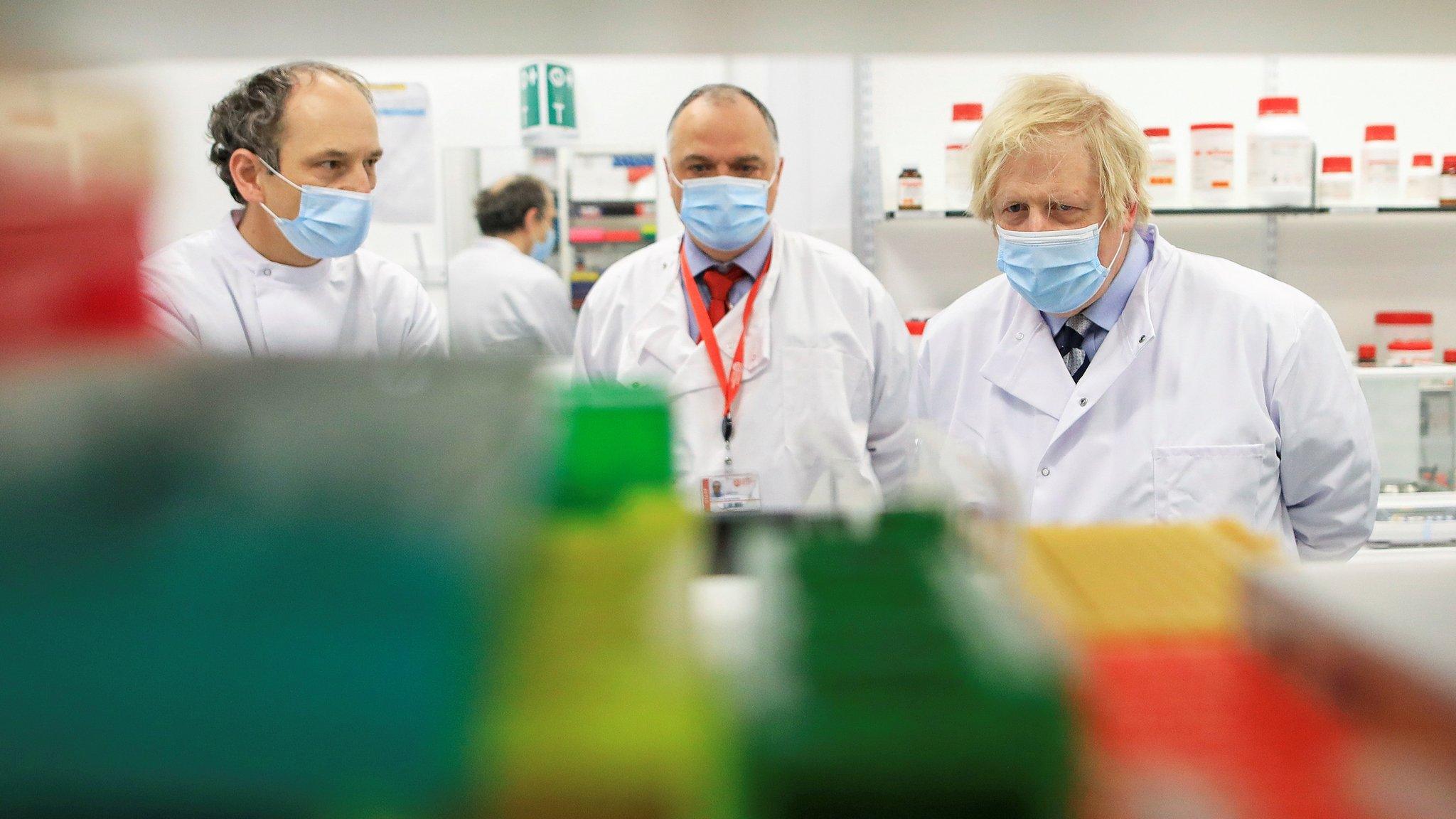Boris Johnson urged to 'step up' to tackle recent NI rioting
- Published
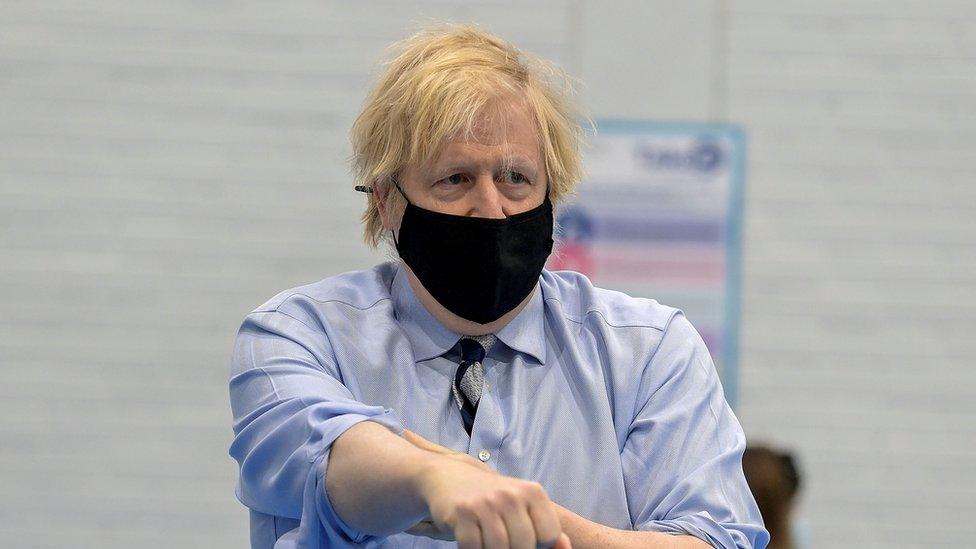
Boris Johnson visited a vaccination centre in Northern Ireland in March
Prime Minister Boris Johnson has been urged to "step up" and "listen" to concerns in Northern Ireland to help prevent a repeat of recent rioting.
Earlier in April, almost 90 police officers were hurt in sporadic riots which started in loyalist areas and spread to interface flashpoints.
Several high-profile figures put their concerns to the PM in a letter.
Signatories included four former NI secretaries, a former chief constable and a former Archbishop of Armagh.
They advised him not to ignore unionist "grievances" and urged him to rebuilt "trust" with the Irish government.
The joint letter warned Mr Johnson and Northern Ireland Secretary Brandon Lewis of the danger that a "political vacuum" could pose to the peace process.
One of the signatories, former NI Secretary Shaun Woodward, said Downing Street was "playing with fire" by "by ignoring the demand to be involved".
"The politics is failing the people of Northern Ireland and the root of that failure sits in 10 Downing Street," Mr Woodward told the Nolan Show on Radio Ulster.
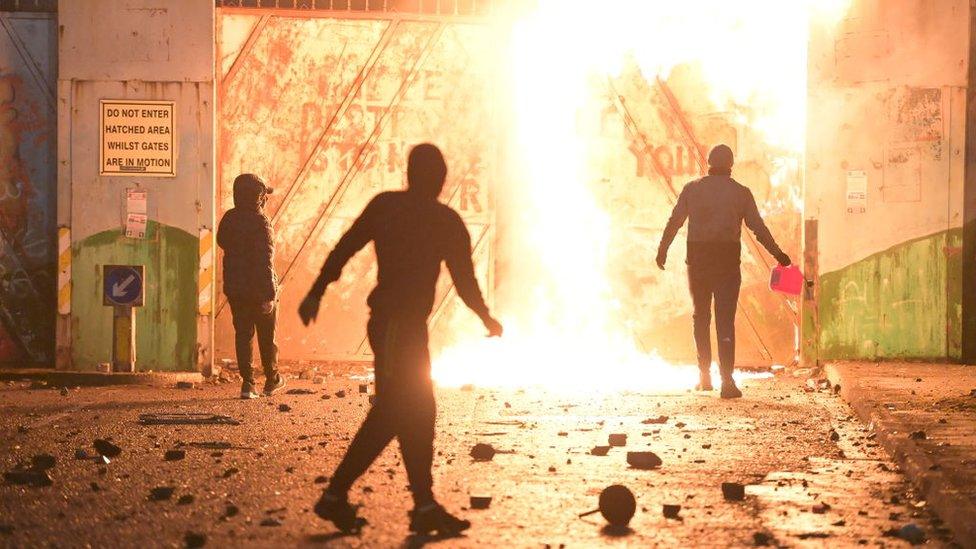
The gates of one of Belfast's so-called peace walls were prised open before being set alight earlier this month
He added: "Simply hoping that this is going to solve itself and go away is irresponsible at best and catastrophic at worst.
"Right now, if the prime minister engages, it possibly can bring us back, but we are heading to a very bad place if he does not seriously engage."
The letter suggested the government at the highest level must be "seen to take an interest" in Northern Ireland.
It was written weeks after Belfast saw its worst street violence in years.
Following the disturbances, Mr Johnson said he was "deeply concerned" and that "the way to resolve differences is through dialogue, not violence or criminality".
The letter was signed by four of Mr Lewis's predecessors; Lord Hain, Lord Mandelson, Lord Murphy and Mr Woodward.
Other signatories included Lord Patten, the architect of policing reforms which helped establish the Police Service of Northern Ireland (PSNI) in 2001, former PSNI Chief Constable Sir Hugh Orde and Lord Eames, formerly the Church of Ireland's most senior cleric.
"With our long collective experience we are extremely worried that violent unrest on the streets of loyalist areas and at interfaces is a consequence of politics, both in Stormont and in Whitehall, failing the people of Northern Ireland," they wrote.
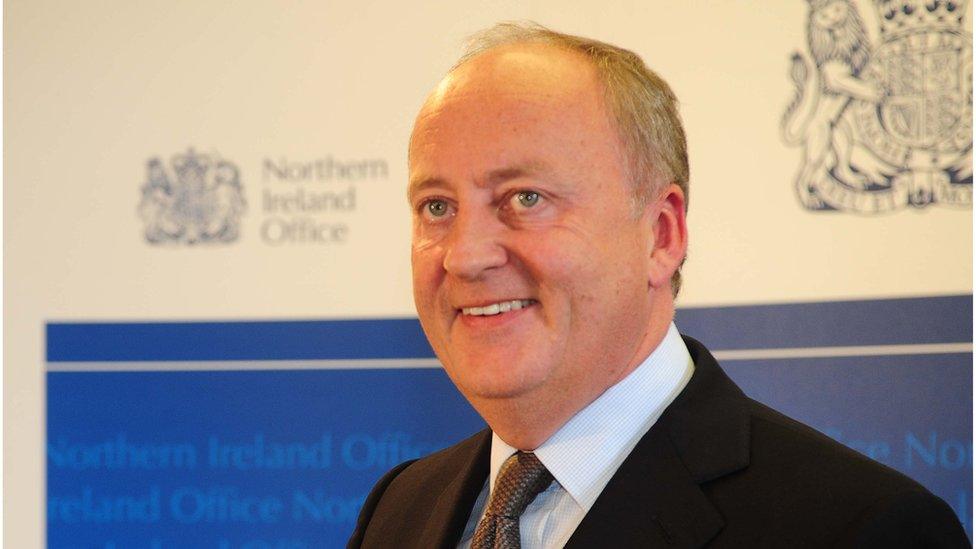
Shaun Woodward, who served as NI secretary from 2007 to 2010, says Downing Street was "playing with fire".
"We stress that the peace process did not end with the Belfast (Good Friday) Agreement," the letter added.
"Tony Blair and Gordon Brown recognised that, as did [Sir] John Major before them. They each took personal charge of the peace process, convening regular summits and being in constant touch with all the parties."
The signatories called on the current PM and NI secretary to "listen and be seen to be listening" when dealing with Northern Ireland.
The recent rioting in some loyalist areas was attributed in part to anger over the Irish Sea border - the new trade regulations which came into force in January as a result of Brexit and the Northern Ireland Protocol.
Unionist parties and many loyalist communities object to the protocol as they believe it undermines Northern Ireland's status in the UK.
However, the unrest was also linked to several other factors, including the decision not to prosecute anyone for breaching Covid regulations during the funeral of a former IRA intelligence chief in June.
'No-one is listening'
The letter stated: "While the violence is unacceptable, the fact is that there are grievances, real and perceived, within the broader unionist community and that cannot be ignored by the UK government."
It added: "There is a strong sense within loyalist and unionist communities that no-one is listening to them, and that nobody in authority in Whitehall has been honest with them about the consequences of Brexit.
"The most immediate step is therefore for the government, at the highest level, to be seen to take an interest."
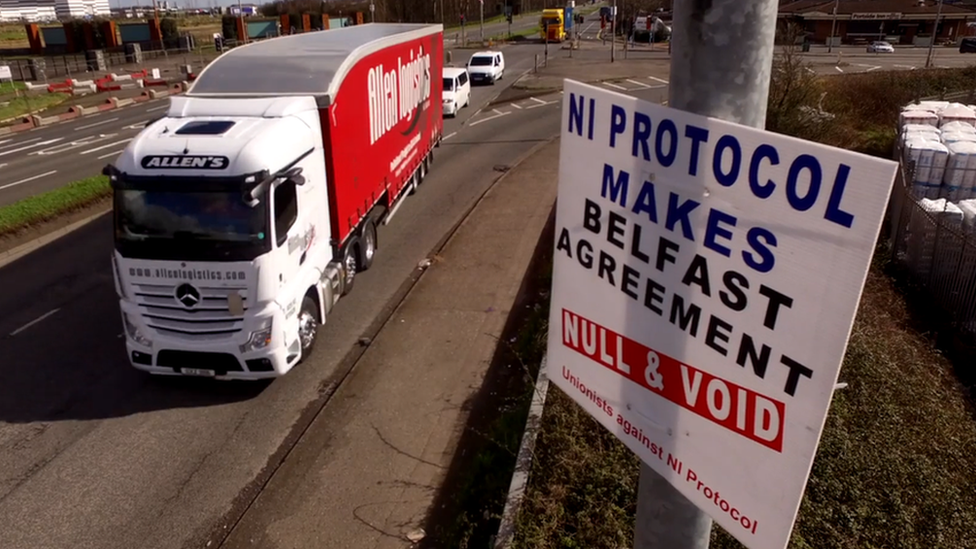
The Northern Ireland Protocol is opposed by unionist parties, which see it as undermining their place in the UK
The signatories also suggested Mr Johnson and Mr Lewis "need to rebuild trust with Dublin, which has been badly damaged, and to breathe fresh life into the British Irish intergovernmental process that is a key part of the Belfast (Good Friday) Agreement".
"The lesson of the past 50 years or more in Northern Ireland is that, if there is no forward movement, things do not stand still: they fall over," the letter stated.
"It is the responsibility of the UK government to ensure that does not happen because there is nothing more dangerous than a political vacuum."
Related topics
- Published14 April 2021
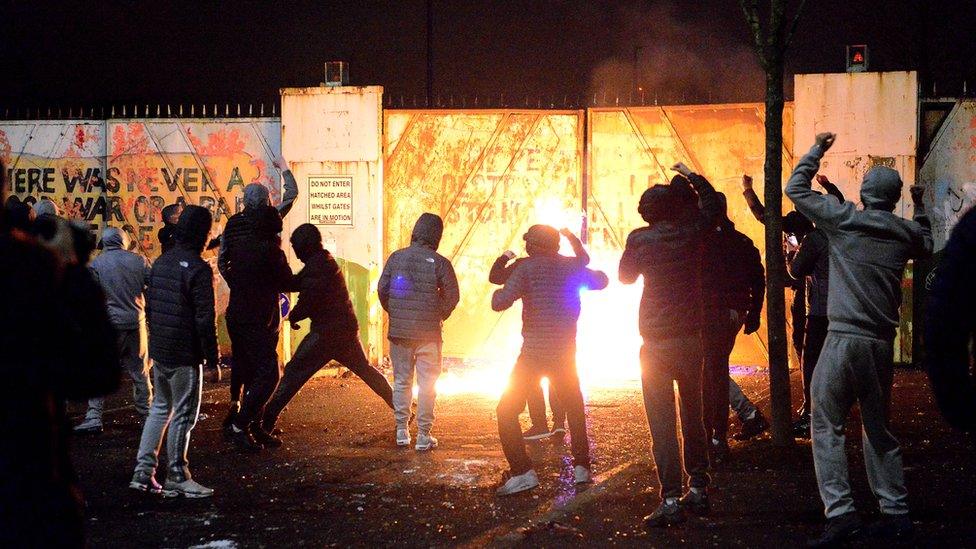
- Published12 April 2021
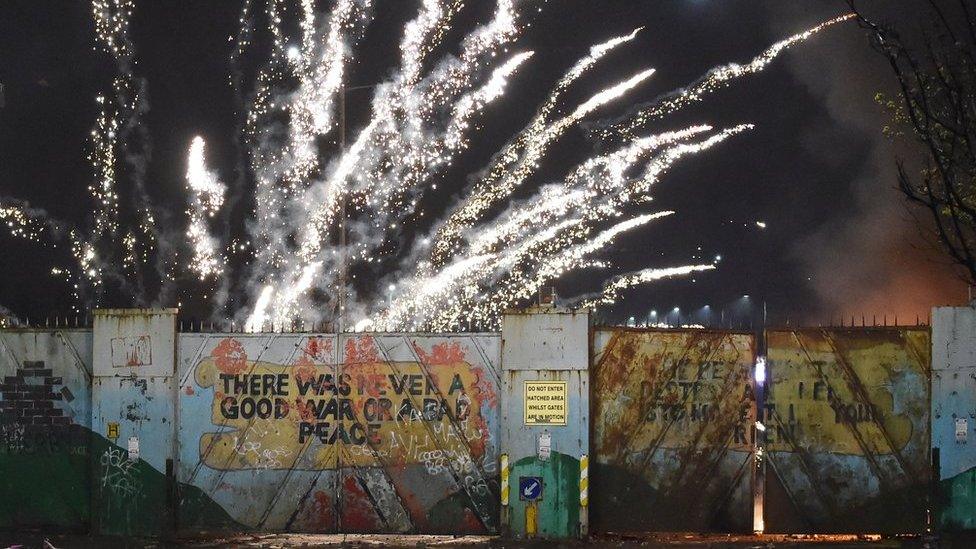
- Published12 March 2021
